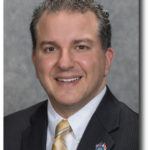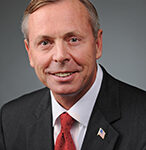Ahead of next week’s special legislative session, Florida’s chief financial officer is asking lawmakers for $6.5 million to fund 23 new investigative positions and to launch a public education campaign, part of his proposal to combat insurance fraud and reduce losses for insurers.
CFO Jimmy Patronis, whose Department of Financial Services oversees insurance fraud investigations and public adjusters, also is urging legislators to tweak state law to allow whistleblowers to recover damages in insurance fraud cases. Another part of his five-point plan would grant $25,000 rewards to people who provide information leading to the arrest, not the conviction, of persons engaged in alleged fraud.

“Florida communities are under attack by fraudsters who are willing to try anything to game the system. They are stealing from us all!” Patronis said at a news conference last week. “To win this war, we need the troops, the weapons, and a full commitment to the mission.”
The funding source would be up to the Legislature but could come from the state’s Insurance Regulatory Trust Fund, which is funded partly by insurer payments, or from the state’s general fund, a spokesman for Patronis said. DFS does not yet have a sponsor for a funding bill but is working with legislative staff, communications director Devin Galetta said.
Some $3 million would go to the education campaign and $3.5 million would be needed for three additional anti-fraud squads, bringing the total number of DFS fraud teams to five. The new squads would include 15 detectives and three supervisors; three attorneys and an administrator to prosecute cases; and an analyst to expedite investigations, DFS explained.
Some lawmakers and insurance industry leaders have questioned why DFS has not pursued insurance fraud more aggressively already, since fraudulent roof and water-damage claims have been cited as a leading cause of loss costs and loss adjustment expenses. The DFS received more than 1,700 tips or reports on suspected insurance fraud in 2021, but just 14 people were convicted, Tampa TV station WFLA reported last week.

“So we started at 1,700 and we held accountable 14 convictions. That concerns me a little bit,” said state Rep. David Smith, R- Seminole.
At a legislative committee hearing last fall, the DFS fraud team director said that homeowner insurance fraud is difficult to prove and time-consuming to prosecute. Patronis also said that state laws don’t specifically outlaw some practices. Statutes prohibit contractors from offering to pay an insured’s deductible, but there are ways around that and proving intent can be tricky.
“I can always use more help but the help that we really need is with the Florida Legislature to close the loopholes that are allowing the gaming of the system. That is what’s driving your insurance rates up,” Patronis told WFLA news.
Gov. Ron DeSantis called the special session for May 23-27, after the regular session of the Florida Legislature this spring failed to pass significant measures addressing the insurance crisis in the state. Three property insurers have become insolvent this year and a third will wind down operations soon. Policyholders across the state have seen premiums increase sharply as insurers blame storm damage, fraudulent roof claims and extreme amounts of claims litigation for mounting losses.
In his proclamation convening the session, DeSantis outlined a number of proposals that will be on the agenda. One of those is appropriations and another mentions the state Office of Insurance Regulation. OIR is housed under DFS, but the governor’s proclamation did not specifically name the Department of Financial Services.
Patronis surprised many across Florida at the news conference last Thursday when he said that the session should also ban the bundling of assignment of benefits agreements.
“We cannot allow law firms, or public adjusters, to get in the business of bundling AOBs and selling them for profit like a security,” Patronis said in a statement. “I want to deter a feeding frenzy of bad actors from going after consumers to sell AOBs on the open market.”
He did not provide further information about the bundling practices, who is engaged in it, or how it works. A staff member did not provide further details by Monday morning.
The practice of bundling financial instruments and selling them as investments reared its head during the U.S. housing bubble of the mid-2000s. Investment banks bundled thousands of home mortgages, known as collaterized debt obligations or CDOs, and sold them to investors.
Topics Florida Fraud Training Development
Was this article valuable?
Here are more articles you may enjoy.



 Former MLB Player, 3 Others Charged with Staging Auto Accident in Miami
Former MLB Player, 3 Others Charged with Staging Auto Accident in Miami  Vintage Ferrari Owners’ Favorite Mechanic Charged With Theft, Fraud
Vintage Ferrari Owners’ Favorite Mechanic Charged With Theft, Fraud  How California’s Huge Raises for Fast-Food Workers Will Ripple Across Industries
How California’s Huge Raises for Fast-Food Workers Will Ripple Across Industries  JPMorgan Client Who Lost $50 Million Fortune Faces Court Setback
JPMorgan Client Who Lost $50 Million Fortune Faces Court Setback 


